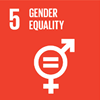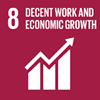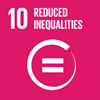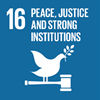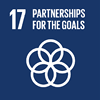Transforming economies, states, and societies
At its core, development is about the well-being of people. But it is also about creating societies which provide fundamental rights and just social political outcomes. Sustainable and inclusive development requires transformative changes across three fundamental areas: in the structures of economies, in the state, and institutions that govern social and market interactions and broader developmental processes, and in society itself. These transformations are central to the achievement of the United Nations’ 2030 Agenda for Sustainable Development and the Sustainable Development Goals (SDGs).
The 2019–23 UNU-WIDER work programme focuses on the interlinked development challenges of transforming economies, states, and societies and maps them against SDGs 5, 8, 10, 16, 17. By mobilizing research evidence for action through the ongoing processes in the UN and its member states, the institute continues to work with stakeholders to strengthen capacities for research, technical, and policy analysis, and facilitate exchange of experiences and knowledge towards bold and collaborative development solutions for countries and regions around the world.
Click on the table below to explore our current work or scroll down to search past projects.
16 active and previous projects
Filter by...
2008-09
African development - myths and realitiesExisting research on Africa has produced a seemingly endless list of reasons why African growth and poverty reduction record has lagged behind that of other regions of the developing world. This project looks at the reasons put forward for Africa’s...
2008-09
Frontiers of poverty analysisThe aim of this project is to take stock of the often overlooked options now available to researchers at the frontiers of poverty analysis and to illustrate their use in developing country contexts. The main project activity will be an international...
2008-09
Development in an urban worldIn 2007 the number of urban inhabitants will surpass rural dwellers as a percentage of the total world population. By 2030 the proportion of people living in cities globally is expected to reach 61%, with almost 80% of urban dwellers living in less...
2008-09
Promoting entrepreneurial capacityEntrepreneurship can play an important role in structural economic change and in improving wellbeing. Governments and international institutions are investing increasing resources to promote entrepreneurship. This project aims at a greater...
2008-09
Role of elites in economic developmentTheir influence of elites in politics, government, business, and the media profoundly influences the direction of economic and social activities. In some countries, the preferences of elites are closely aligned with the national interest. Elsewhere...
2008-09
Reflections on transition - twenty years after the fall of the Berlin wallThe fall of the Berlin Wall in November 1989 was a defining moment in the transition of former socialist countries into market economies. To mark the twentieth anniversary of this historic event, UNU-WIDER is organising a two-day conference to review...
1998-99
Information technology - growth and employmentIt is a widely held opinion among policy-makers and social scientists that the so-called 'information revolution' is having a substantial impact on the world economy. It is often also presumed that this impact is beneficial to all those countries...
1998-99
New roles and functions for the UN and the Bretton Woods InstitutionsIn a world beset by the effects of the Great Depression and war, the 'Keynesian message' strongly inspired the post-war policy agenda and the structuring of the UN/Bretton Woods system. In contrast, an increasing gap has been emerging between the...
1998-99
EMU and its impact on Europe and the developing countriesThe single European currency, the euro, implies deep changes in the pattern of economic integration in Europe, as well as in the world financial system. These changes will have important consequences on developing countries as well. In Europe, the...
1998-99
Rising income inequality and poverty reduction - are they compatible?Over the last several years, the donor community has increasingly focused its efforts on poverty eradication. Meanwhile, income inequality appears to have been rising in many developed, developing and transitional countries. Economic theory explains...
1998-99
Transition from below - the role of the new private sectorMuch of the discussion about privatization in the former socialist economies has focused on the divesture of state-owned enterprises (SOEs). While this approach has been inspired by the belief that privatization will solve all production and...
1998-99
Underdevelopment, transition & reconstruction (UTR) in SSAThe development prospects in SSA are particularly problematic in those countries which adopted Soviet style planning in the 1970s, i.e. Angola, Congo, Eritrea, Ethiopia, Guinea, Guinea-Bissau, Mozambique, and Somalia. The policies of these countries...
1998-99
Development problems in natural resource-based growth modelsIn the top and bottom ranks of the GDP/c league, one finds countries which are completely devoid of natural resources, as well as others where the natural wealth of the country has played an important role in development. The evidence reviewed in the...
1998-99
Institutions, group behaviour and developmentInstitutions, such as firms, families, contracts, rules, regulations, values, and social norms, are fundamental for economic development. They influence both the level and the pace of economic growth, which can and frequently does trigger...
1998-99
Poverty, income distribution and well-being during the transitionSee publications for work connected to this project.
 Join the network
Join the network
